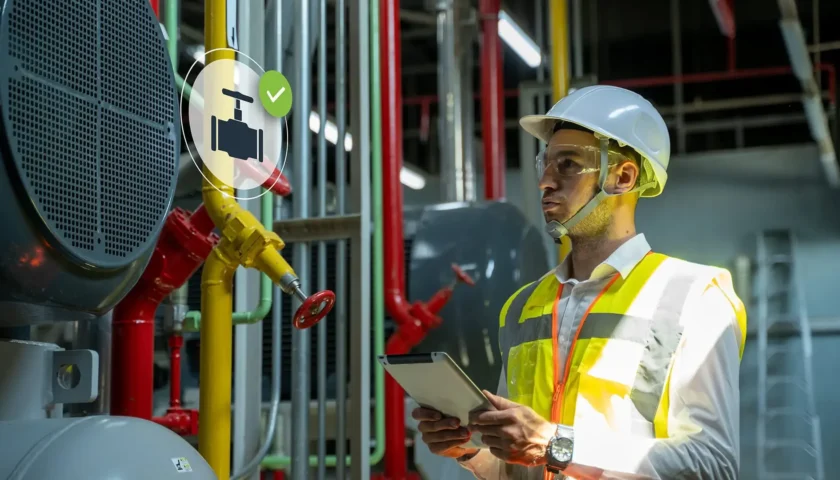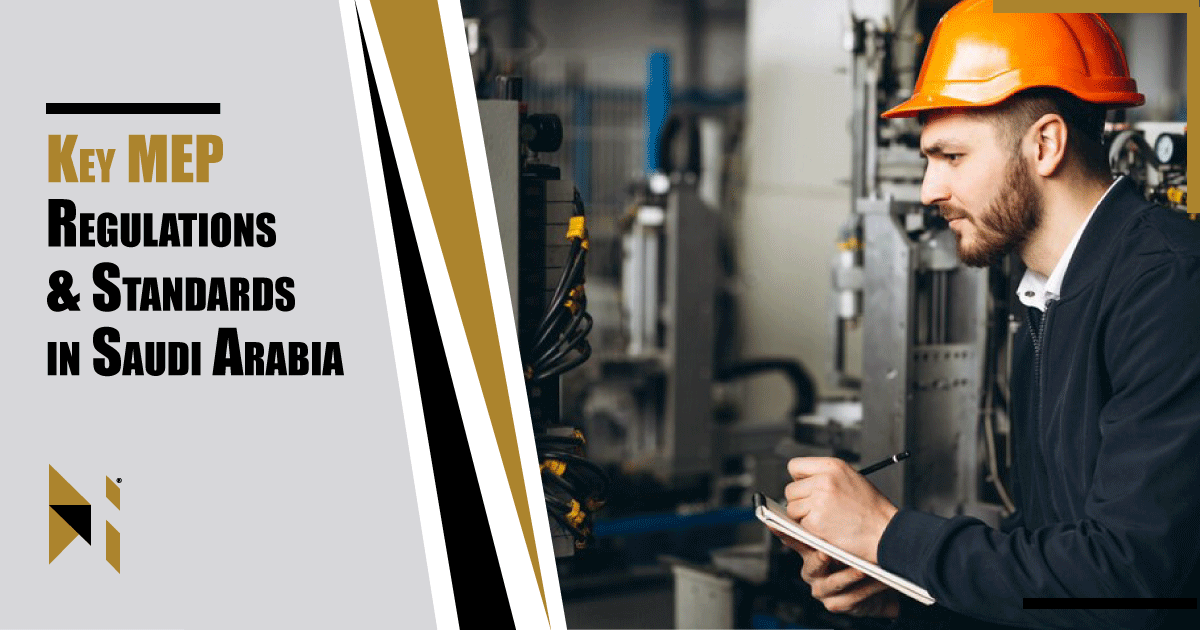Table of Contents
ToggleThe construction industry requires a commitment to MEP standards and regulations—their worries center on safety and security. MEP rules are necessary to ensure building and construction sites’ safety. The area’s codes and standards determine how these regulations are updated. The construction sector in Saudi Arabia must follow certain MEP standards and codes while carrying out building or maintenance work. These codes provide information for the internal plumbing, electrical, and mechanical system infrastructure and building details. The essential MEP standards and rules for Saudi Arabia’s construction industry will be covered in this post. We’ll discuss their significance as well as the reasons why contractors and builders need to follow them.
MEP regulations and standards in Saudi Arabia
MEP systems stand for mechanical, electrical, and plumbing systems in buildings. Guidelines, regulations, and operational standards for the design, implementation, and upkeep of MEP work in buildings and infrastructure development projects have been made public by Saudi Arabian authorities. The main regulatory body in charge of regulating the MEP work on all construction projects is the Saudi Arabian Standard Organization (SASO). All aspects of mechanical, electrical, and plumbing work related to building and infrastructure development are covered under the Saudi Construction Code (SBC). It also provides guidelines for structural work and sustainable planning. Electrical work is subject to safety regulations and standards issued by SEC, the Saudi electricity provider. The Saudi Plumbing Code, or SPC, governs operations and water supply management. One must follow regulations to work as a builder or contractor.
Developing guidelines requires a deep understanding of technology. Creating and enforcing a building code is the hardest and most complex standardization task. To guarantee solid and secure construction, many skilled building inspectors work to enforce certain building rules in Saudi Arabia.

MEP Codes in the Construction Industry
The criteria that must be adhered to when performing building or maintenance work are outlined in MEP codes. During the working phases, these codes are handled by engineers and builders. The Saudi departments and authorities have arranged these norms for safety requirements; thus, they must abide by them. These are safeguards against problems with safety and security. These codes guard against water damage, fires, and system damage. Energy efficiency maximizes HVAC systems and promotes environmentally friendly building practices. Saudi Arabian authorities issue legal permits and certifications to perform MEP works. After obtaining these local building codes, the contractors proceed as necessary. Additionally, they support promoting sustainable practices such as using renewable energy, energy-efficient lighting and appliances, water use, and safety.
The MEP infrastructure is planned and designed with these codes in mind by the architects. Engineers stick to the approved plans and maps when working on a project. Saudi Arabian local legislation must be complied with by the building structure standards. The contractors follow these guidelines to perform effectively and professionally.
Regulatory Framework for MEP Work
To provide their services and oversee their projects, all construction companies and MEP contractors operating in Saudi Arabia must adhere to some compulsory norms and criteria. These are intended to produce work and results of higher caliber. The primary goal of these regulations is to guarantee safety standards. SBC sets the necessary standards for building planning, design, and construction. When working on electrical wiring, electrical engineers and technicians adhere to the guidelines set forth by the EWR. Information and guidelines for mechanical work and HVAC services can be found in the Saudi Mechanical Code. The Saudi Energy Efficiency Center examines the sustainability criteria. It publishes standards for various building regulations based on sustainable development and working requirements, procedures, and instructions for environmentally friendly construction practices.
Several approved bodies and organizations in Saudi Arabia oversee and uphold working standards in the building sector and residential developments. They also maintain and apply these rules to Saudi Arabia’s infrastructure development initiatives. By implementing these tactics, Saudi Arabia’s well-established housing sector and construction industry can boast excellent building standards that are on par with those of other wealthy nations. The foundation of any building is the MEP system. For the equipment and its parts to operate at their best and last as long as possible, it must be completed and operated precisely and properly. Its rules must be observed for the environment to be safe and secure.
Conclusion
MEP contractors must stick to regulatory permits and standards to properly deliver their services in Saudi Arabia. These requirements are established by various legal departments and organizations, which also release recommendations for MEP work. On the other hand, select the best contractor with an experienced team and the necessary permits to provide services if you have an MEP project in the future and are searching for a trustworthy and professional MEP contractor to manage the work. These codes cover the internal mechanical, electrical, and plumbing system infrastructure and building details. These fundamental MEP guidelines and standards apply to Saudi Arabia’s construction sector.




